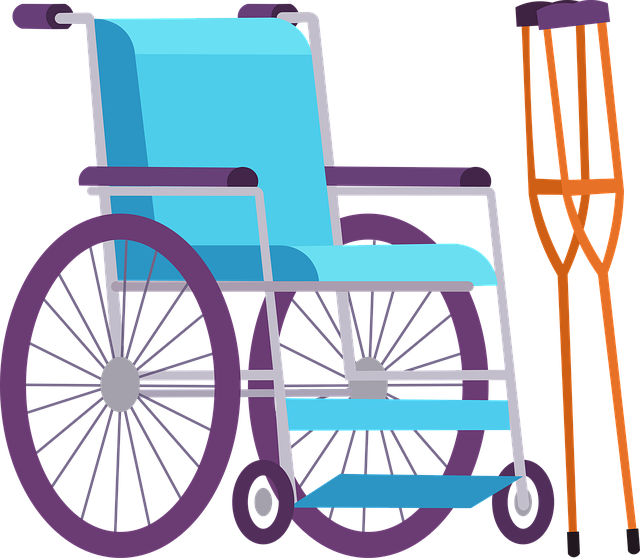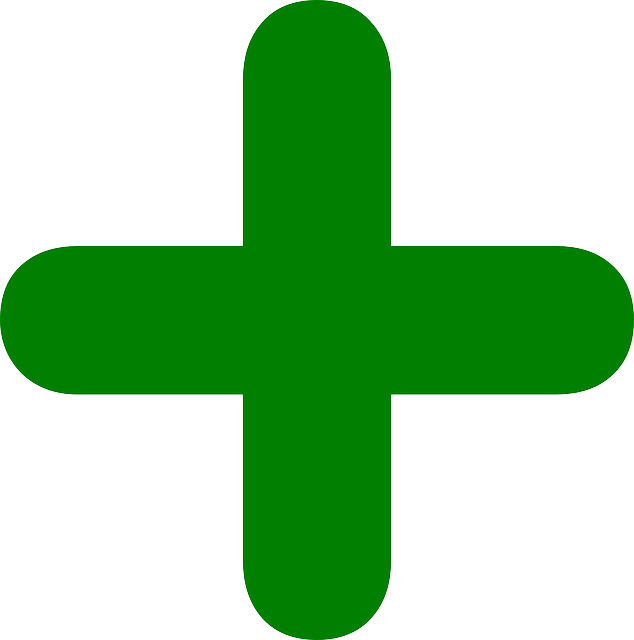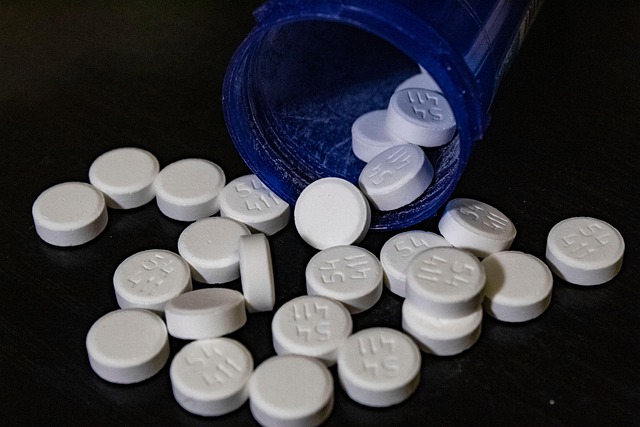Stress Management Workshops: Empowering Coping & Emotional Balance for Better Mental Health
Stress management workshops are gaining prominence in addiction treatment centers that accept Medica…….
Over 15% US adults have used prescription painkillers not prescribed to them.
In today’s complex healthcare landscape, addressing addiction has become a critical global priority. As the opioid crisis and other substance use disorders continue to impact communities worldwide, access to effective treatment plays a pivotal role in recovery. This article delves into the world of addiction treatment centers that accept Medicaid, exploring their significance, operations, and impact on individuals seeking rehabilitation. By examining various aspects, from historical context to future prospects, we aim to provide an insightful guide for both professionals and those in need of support.
Definition: Addiction treatment centers that accept Medicaid refer to specialized facilities offering comprehensive care for substance use disorders and other related mental health issues. These centers cater to individuals who may not otherwise afford private treatment, ensuring accessibility through government-funded insurance plans like Medicaid.
Core Components:
Medical Detoxification: This initial phase focuses on safely managing withdrawal symptoms while preparing the individual for further treatment. Medical professionals monitor vital signs and administer medications as needed.
Individual and Group Therapy: Trained therapists facilitate personalized sessions addressing underlying causes of addiction, coping mechanisms, and relapse prevention strategies. Group therapy provides peer support and a sense of community.
Behavioral Interventions: Evidence-based approaches such as Cognitive Behavioral Therapy (CBT), Dialectical Behavior Therapy (DBT), and Motivational Interviewing (MI) help individuals change their thinking patterns and behaviors related to substance use.
Supportive Services: These include counseling, family therapy, education on addiction, and job skills training to aid in reintegration into society. Some centers also offer aftercare programs to support long-term recovery.
Historical Context: The concept of publicly funded addiction treatment has evolved over time. In the early 20th century, institutionalization was common, with large facilities providing long-term care. However, deinstitutionalization movements in the late 20th century shifted focus to community-based treatment and recovery support services. Medicaid, established in the 1960s, played a pivotal role in ensuring accessibility to mental health and substance use disorder services for low-income individuals.
Addiction treatment centers that accept Medicaid have a significant global reach, with varying levels of implementation across countries:
North America: The United States has a well-established network of such centers, often referred to as ‘rehab centers’ or ‘treatment facilities’. Canada also boasts a robust system, with provincial healthcare plans covering addiction treatment.
Europe: Many European countries offer publicly funded addiction services, though the scope and quality can differ. The UK’s National Health Service (NHS) provides comprehensive coverage for addiction treatment through specialized clinics and hospitals.
Asia: Countries like Japan, South Korea, and India have seen growth in public addiction treatment centers, often integrated within larger healthcare systems. However, access remains a challenge in some rural areas.
Middle East and Africa: The availability of Medicaid-like programs varies, with some countries offering limited public funding for mental health services, including addiction treatment.
Trends:
Outpatient Programs: There is a growing emphasis on outpatient care, allowing individuals to receive treatment while living at home, which improves accessibility and reduces stigma.
Integrating Services: Many centers now offer integrated care, combining medical, psychological, and social services under one roof to address the complex needs of individuals with co-occurring disorders.
Telehealth and Digital Tools: The rise of telemedicine allows remote access to counseling and therapy, while mobile apps provide digital support for recovery, offering flexibility and accessibility.
Market Dynamics: The global addiction treatment market is substantial and growing, driven by increasing substance use disorders and aging populations. According to a 2021 report, the global market size was valued at USD 374.5 billion in 2020 and is projected to grow at a CAGR of 8.6% from 2021 to 2028. The segment for outpatient treatment and rehabilitation centers accounts for a significant share due to their accessibility and cost-effectiveness.
Investment Patterns: Private equity firms and venture capital investors have shown interest in addiction treatment centers, recognizing their potential for growth and social impact. Many centers partner with these investors to expand services, improve facilities, and enhance clinical offerings.
Economic Impact: These centers contribute significantly to local economies through direct employment, business partnerships, and increased tax revenue due to improved health outcomes and reduced criminal activity associated with untreated addiction.
Technological innovations have revolutionized addiction treatment:
Virtual Reality (VR) Therapy: VR offers immersive experiences to expose individuals to triggers and practice coping mechanisms in a safe environment. It has shown promise in treating phobias, anxiety, and PTSD related to substance use disorders.
Mobile Health (mHealth) Apps: These apps provide personalized support, track progress, offer educational resources, and connect users with peer networks. They enhance access to care and promote self-management.
Digital Therapeutics: Online platforms deliver evidence-based interventions, allowing remote access to therapy, counseling, and skill-building sessions. This technology improves accessibility, reduces costs, and offers flexibility for both patients and providers.
Wearable Devices: Activity trackers and health monitors can provide real-time data on an individual’s physical activity, sleep patterns, and vital signs, aiding in personalized treatment plans and early intervention.
Key Frameworks:
Medicaid Program: In the US, Medicaid is a joint federal and state program that provides health coverage for low-income individuals and families. Each state administers its own Medicaid program, determining eligibility criteria and covered services, including addiction treatment.
Substance Use Disorder (SUD) Treatment Guidelines: Various organizations, such as the American Psychological Association (APA) and the World Health Organization (WHO), publish guidelines for evidence-based practices in SUD treatment, influencing policy development and clinical standards.
Healthcare Reform Laws: Initiatives like the Affordable Care Act (ACA) in the US have expanded coverage for mental health and addiction services, ensuring that these treatments are included in insurance plans.
Influence on Development: Governments play a crucial role in shaping the availability and quality of addiction treatment centers by setting policy priorities, allocating funding, and regulating service delivery. Strict regulations ensure ethical practices and patient safety while fostering innovation and access to care.
Despite their significance, addiction treatment centers that accept Medicaid face several challenges:
Stigma and Misperceptions: Stigma surrounding addiction often leads to underfunding and limited public support for these centers, impacting their ability to reach those in need.
Access Disparities: Rural areas and underserved communities may have limited access to quality treatment, exacerbating health disparities.
Funding and Resource Constraints: Public funding for addiction services is often insufficient, leading to overburdened facilities and reduced service quality.
Regulatory Compliance: Staying current with evolving regulations can be challenging, requiring significant administrative resources.
Proposed Solutions:
Public Awareness Campaigns: Educating the public about addiction as a chronic disease can reduce stigma and encourage support for treatment centers.
Targeted Outreach: Developing community-based programs to reach underserved populations can improve access to care.
Increased Funding: Advocacy for dedicated funding streams and partnerships with private sector entities can alleviate financial constraints.
Streamlined Regulations: Simplifying regulatory processes can reduce administrative burdens, allowing centers to focus more on patient care.
The future of addiction treatment centers that accept Medicaid holds both opportunities and challenges:
Personalized Medicine: Advancements in genomics and neuroscience will enable more personalized treatment approaches, tailoring interventions to individual needs and genetic predispositions.
Digital Transformation: The integration of artificial intelligence (AI) and machine learning algorithms can enhance diagnosis, treatment planning, and outcome prediction, improving clinical decision-making.
Telehealth Expansion: As technology advances, telehealth services will likely become even more prevalent, increasing accessibility for rural and remote communities.
Focus on Primary Prevention: There is a growing emphasis on prevention strategies within schools and communities to reduce substance use before it becomes a disorder, shifting the focus from solely treating addiction.
Global Collaboration: International partnerships can foster knowledge sharing, best practices, and resource pooling, improving global access to quality addiction treatment.
Addiction treatment centers that accept Medicaid are essential pillars in the global effort to combat substance use disorders. They provide life-saving care, support recovery, and contribute to healthier communities. By understanding their operations, challenges, and future prospects, we can advocate for evidence-based policies, allocate resources effectively, and ensure these centers remain robust and accessible. As society continues to evolve, so too must our approach to addiction treatment, embracing technological advancements, diversifying service delivery models, and fostering global solidarity in the fight against addiction.
Q: How do I know if a center accepts Medicaid?
A: Most centers will clearly state their insurance acceptance on their website or during initial inquiries. Look for information about Medicaid or specific state-funded programs.
Q: Are there any free addiction treatment options?
A: While free treatment may not be widely available, many centers offer sliding fee scales based on income, ensuring affordability for low-income individuals. Government-funded programs and community-based organizations also provide support services at no cost.
Q: Can I involve my family in the treatment process?
A: Absolutely! Family involvement is often a critical component of successful recovery. Many centers encourage family therapy sessions to address systemic issues and provide a supportive network for the individual in recovery.
Q: How long does addiction treatment typically last?
A: Treatment duration varies depending on the severity of the disorder, co-occurring conditions, and individual progress. It can range from several weeks for medical detox to several months or more for comprehensive rehabilitation programs. Aftercare services may extend the overall treatment timeline to support sustained recovery.
Q: What happens after treatment?
A: Post-treatment support is crucial for long-term recovery. Many centers offer aftercare planning, including continued therapy, support groups, and job training. Relapse prevention strategies and ongoing engagement with healthcare providers are essential for maintaining sobriety.

Stress management workshops are gaining prominence in addiction treatment centers that accept Medica…….

Addiction treatment centers accepting Medicaid offer comprehensive care for co-occurring disorders,…….

Addiction treatment centers accepting Medicaid face unique challenges due to high co-occurring disor…….

Recovery coaching services offer a personalized, supportive approach for individuals in addiction tr…….

Withdrawal symptoms pose significant challenges during early sobriety, manifesting as insomnia, naus…….

Recovery Support Services (RSS) integrated into addiction treatment centers that accept Medicaid enh…….

Addiction treatment centers focusing on Medicaid accessibility integrate holistic self-care practice…….

Addiction treatment centers that accept Medicaid play a crucial role in expanding access to recovery…….

Group counseling sessions are a powerful tool in addiction recovery, fostering community, understand…….

Mindful movement combines gentle yoga, breathing exercises, and meditation to support recovery in Me…….